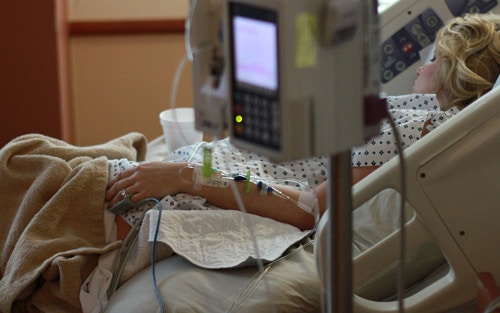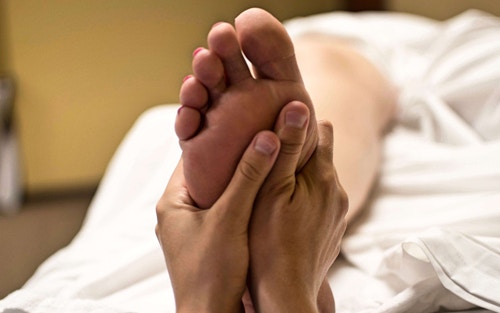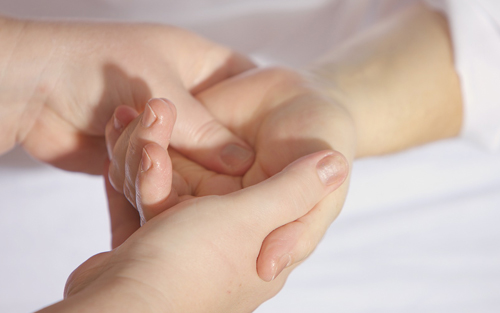
Cancer patients often experience high levels of anxiety and stress after treatment. Reflexology is a form of therapy that can help them find relief.
Study after study confirms that reflexology aids cancer patients in relaxing and coping with stress. With such mounting evidence, it is only natural to conclude that this ancient art of therapy should indeed be a part of their recovery.
The reflexology experts at Foot Palace gathered the following information to heighten your awareness of the ancient roots of this therapy, of how reflexology helps cancer patients, and to dispel some myths about it.
How Does Reflexology Help Cancer Patients?
Cancer treatments like chemotherapy, hormone therapy, radiation, medication, and surgery can leave patients with an array of side effects including anemia, fatigue, nausea and vomiting, pain, and nerve problems, to name a few.
Reflexology is known for easing the side effects of cancer treatments by:
- Improving sleep
- Reducing anxiety
- Reducing chemo associated vomiting and indigestion

Reflexology may also help mitigate the spread of cancer by promoting increased circulation which stimulates antioxidant activity, a known aide in destroying cancer cells. This research is ongoing and promising towards the increase of quality of life for cancer patients and survivors.
Understanding Reflexology and Its Background
Archaeological evidence indicates that reflexology not only existed but was practiced in China and Egypt over 4,000 years ago. Long before the diagnosing and treating of cancer.
As defined by Foot Palace:
“Reflexology is a therapeutic method of massage that relieves stress and tension by stimulating pressure points within the hands and feet by alleviating the source of your discomfort.” “…reflexology may be as effective for promoting better health and for preventing illness, as it may be for relieving symptoms of stress, illness, injury and for improving your mood.”

In the early 1900’s an American ear, nose, and throat physician named William Fitzgerald, MD suggested that the foot could be “mapped” to diagnose and potentially treat medical conditions. His work divided the body into 10 zones and mapped the foot in accordance to it. Zone therapy was born.
Then in the 1930s, Eunice Ingham, a nurse, and physiotherapist, added reflex points to Fitzgerald’s maps. The name zone therapy then changed to reflexology.
Modern reflexologists train under Ingham’s method or that developed by the reflexologist Laura Norman. All employ the fundamental principles in use for millennia.
Can Reflexology Cure Cancer?
While there is currently no “scientific evidence” to prove that reflexology can cure or prevent any disease, including cancer, there is evidence along with ongoing studies that reflexology is useful in the mitigation of stress, anxiety, discomfort, and much more.
The best way to answer this question is:
Not “no” and not “yes,” at least not yet.
Can Reflexology Spread Cancer
Some may argue that deep tissue massages and other methods which apply pressure in motion to the body may cause the spread of cancerous tissues.
Reflexology differs from other massage methods by focusing on the reflex points of the hands and feet.
There is no indication that reflexology applied by trained reflexologists poses any threat of spreading cancer.
Cancer Patients Finding Relief in Reflexology Treatments
As cancer treatments will typically result in elevated levels of stress, discomfort, and anxiety, reflexology is a perfect fit for post-treatment therapy. And while many myths surround reflexology, let’s not forget that its fundamental principles are thousands of years old.

As research from a variety of studies have shown, recovering cancer patients with reflexology included in their therapy experienced better capabilities in coping with stress and anxiety, pain relief, less shortness of breath (a common symptom after breast cancer treatments), and better abilities to perform daily or ordinary tasks.
While the full benefits of reflexology may not be fully understood, it is indeed a way for recovering patients to lessen their anxiety and cope better with the pain, thus potentially returning a portion of their dignity and quality of life to them.
Sources:
https://www.ncbi.nlm.nih.gov/pubmed/23107851
https://www.breastcancer.org/research-news/20121126-2
https://www.takingcharge.csh.umn.edu/history-reflexology
https://www.cancer.gov/about-cancer/treatment/side-effects
(706) 521-5290
(678) 963-5958